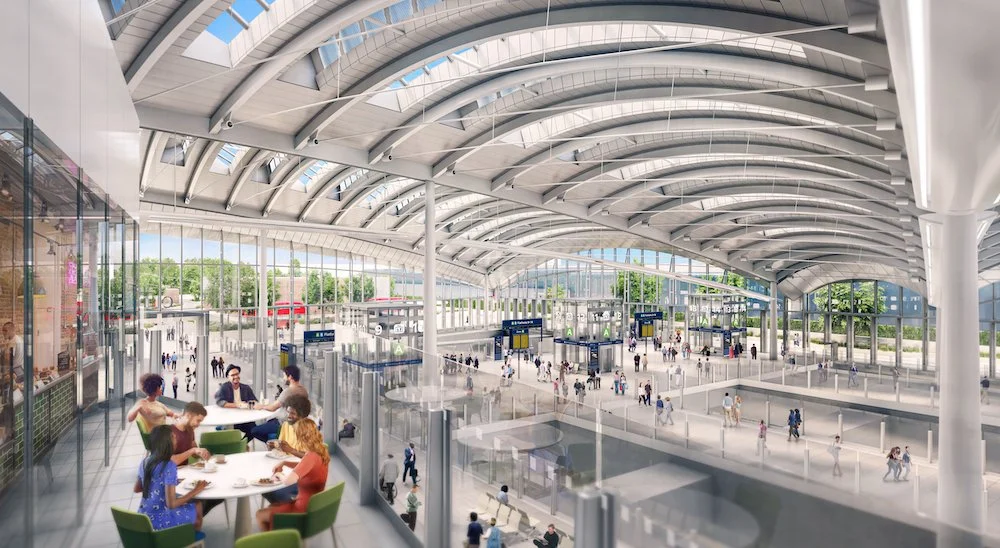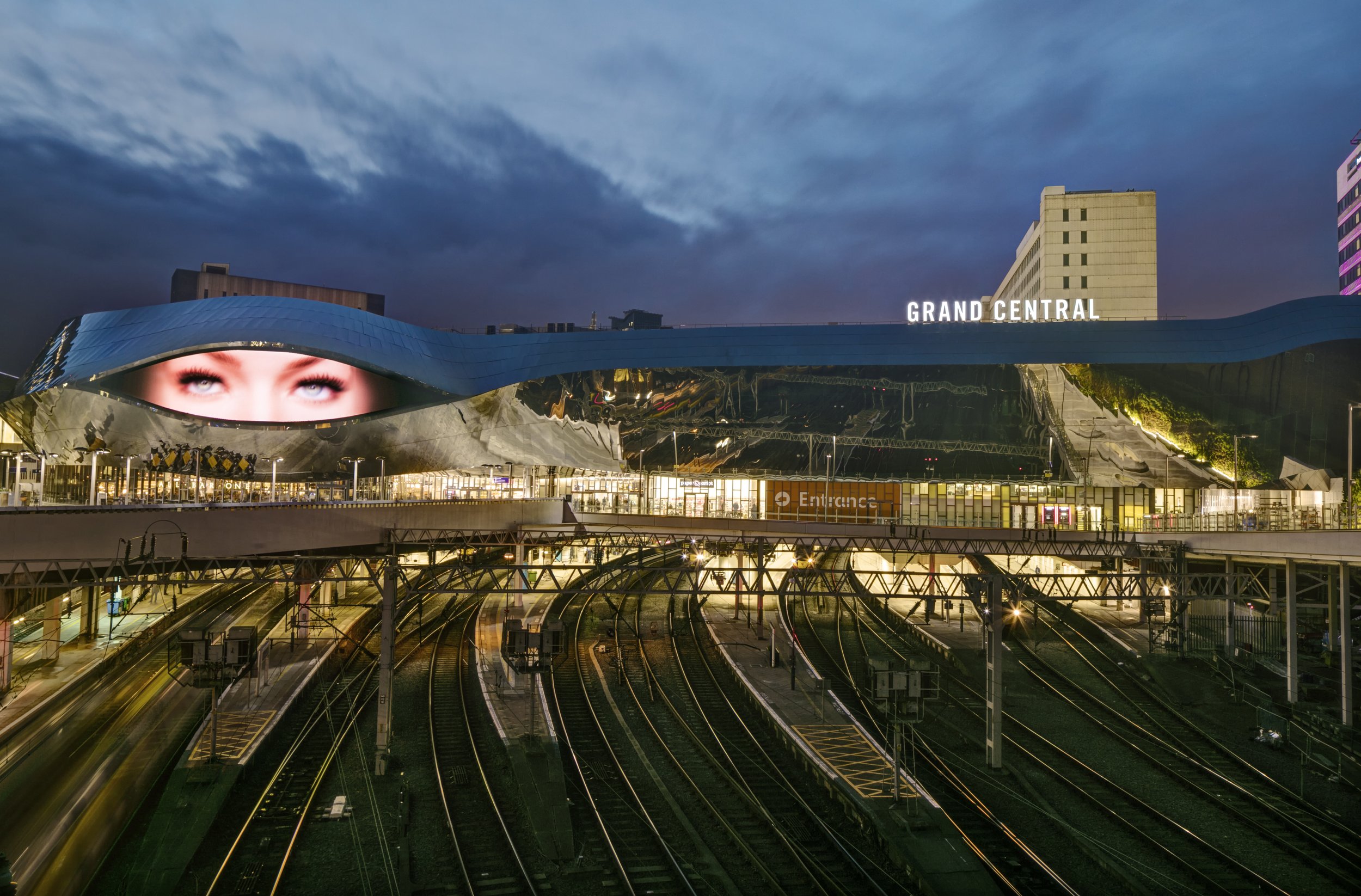The cancellation of HS2 shows the problems with UK infrastructure
I’ll make no bones that I do think this current UK government sucks. Aside from being out and out racist, trying to pitch different communities against one another, their general mismanagement and blatant abuse of power is plain as day to see too. Plus, from a built environment perspective, there are so many ways that the Government is fudging the truth, leaving even more uncertainty in the sector when we can least afford to weather it with rising insolvencies and losses, high-interest rates and inflation.
Image of Old Oak Common HS2 Station
When it comes to HS2, tell us one way or the other what you are going to do. 10 days of speculation in the run-up to the Conservative conference is woeful. Make a decision – then DO IT. However, if the rumoured idea of shelving the northern part of the scheme and scrapping Euston Station is true – this sounds like another major misstep.
The Northern Powerhouse and Levelling Up have well and truly been kicked to the kerb, which again feels altogether wrong. The North needs investment, jobs and connectivity. And yes, even as a Londoner, I have to admit that the years of under investment cannot be denied and it is time that things are indeed levelled up.
What does the UK construction sector need?
If there’s one thing UK construction needs right now, that’s certainty. The sheer amount of major projects and initiatives that were once lauded as the next big thing and then shelved as the rug is suddenly pulled out from beneath us is untrue. Building Schools for the Future, The Code for Sustainable Homes, Crossrail 2 are some that quickly spring to mind. Even now, there’s talk of watering down our net zero commitments as we’re “already a global leader”!!
Do check out this interesting piece in the Washington Post that references the 2022 Environmental Performance Index which ranks countries, and is researched by Yale and Columbia Universities. This report is who the conservatives are basing the statement that “we’re already global net zero leaders” on – although they’re carefully omitting that we’re only leading as we went for the low-hanging fruit – shutting coal-fired power stations which leapfrogged us, but after that, we’re not going to sustain this position for the long term.
Firms, large and small, would have invested in the talent to go for the supposedly ‘big pipeline’ of opportunities and then be left scrambling around trying to find other work to occupy the staff and resources they’d invested in. A massive boom and bust cycle doesn’t bode well for a sustainable business model.
As someone who has worked on, with and bid for large infrastructure projects, particularly rail ones, there tends to be three main reasons why these projects are going over budget, delayed etc.
Reason 1 - Politicians
UK Houses of Parliament
Politicians are using major projects like HS2 as a political football. Will they happen or won’t they, nimbyism which equates to a “not in my constituents’ backyard mentality” to keep them onside with local supporters.
And by not showing long-term commitment to these projects that will run over many electoral cycles creates even more uncertainty – why should firms invest on such a wonky short-term pipeline? It would make far more sense to get cross-party consensus, sponsorship and commitment to funding these major projects and programmes for the long-term and politicians doing what’s right for delivery rather than their own personal vested interests.
There is a lack of understanding about the impact that politicians chopping and changing their minds has on these major programmes. Every change has an impact on the overall project timeline and cost. These are massive schemes with a raft of knock-on effects.
Reason 2 – A more informed client
These major infrastructure projects and programmes are scope, procure and manage. And often clients can be swayed by the political agenda e.g., not being able to write the true cost or length of time something takes due to a minister wanting to have a particular outcome or soundbite or “spades in the ground” for a photocall. Clients not being fully aware of the impact of indecisiveness, late or ill-thought through changes on the project, the overall budget, and the programme. Quite often ill-thought through changes add more cost on all fronts.
These major projects are mammoth to run and let alone get your head around and there may be a skills gap in-house in client teams.
Reason 3 – Poor communications
I wrote a few years ago about the communications issues with HS2 and how getting to Birmingham a few minutes quicker was the death knell of winning the general public’s hearts and minds in many respects
There’s also the issue of the Government Comms approach of drip-feeding rumours to see public sentiment before someone senior level coming out and stating something as fact.
In conclusion, it should come as no surprise about who I won’t be voting for in the next election. But whoever I do end up supporting will need to be brave and step up to the plate to take the tough decisions that need to be made now. We can’t keep pushing hard choices into the long grass. Climate change and its impacts are already being felt now in increasing severity – far quicker than scientists predicated. We need to not be afraid to invest and make the big calls that will propel us to where we need to be in terms of infrastructure, net zero and the like.
I’d love to know your thoughts on this piece and what’s going on at the moment.
Thanks for reading
I’m Ayo and I’m a built environment and infrastructure (particularly rail) nerd. I’m a marketer by trade who loves to create thought proving plans and content for firms who want to make a positive impact. Do DM me if you want to talk about how I can help your firm. ayo@abbasmarketing.com









